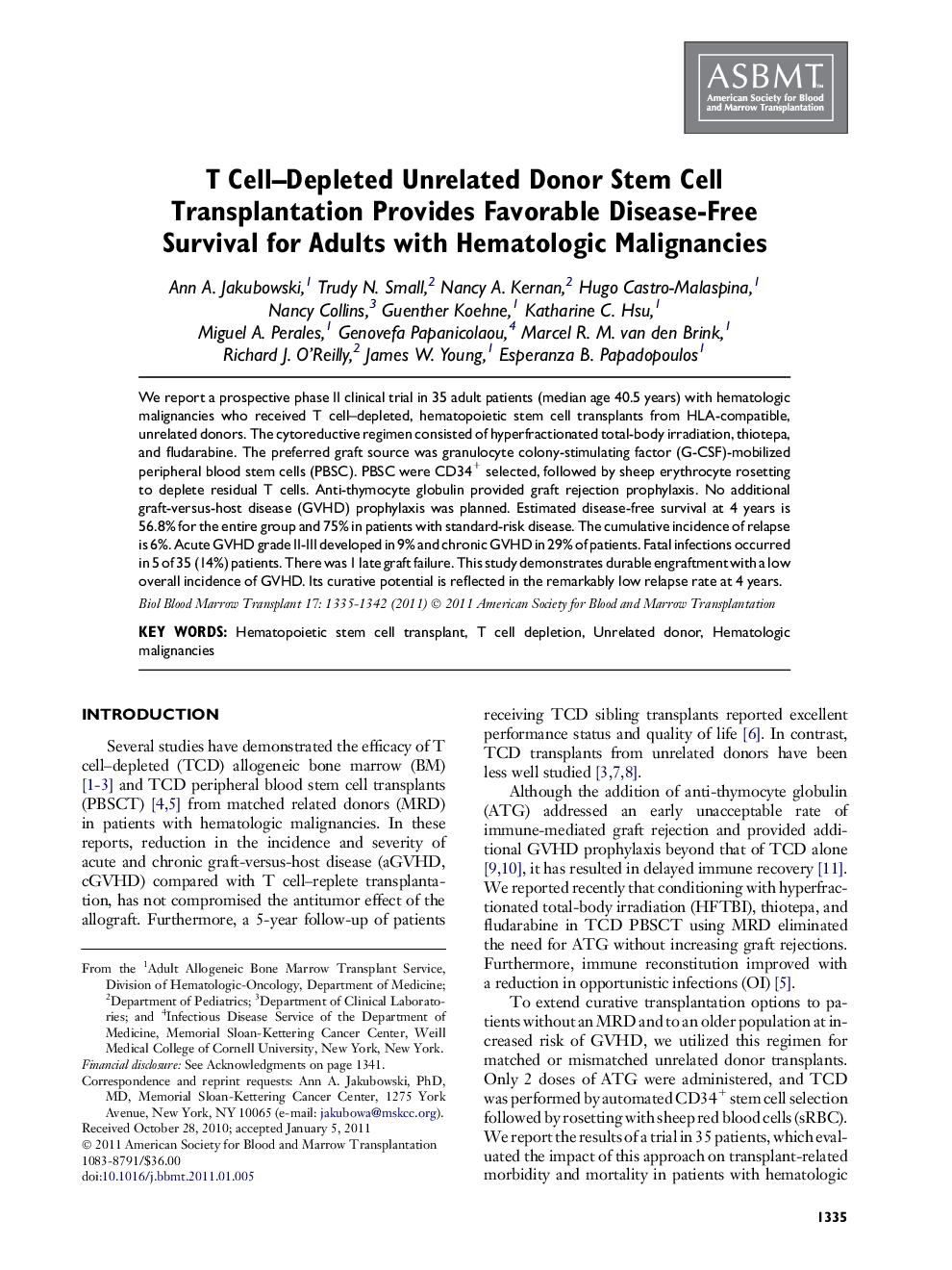| Article ID | Journal | Published Year | Pages | File Type |
|---|---|---|---|---|
| 2105498 | Biology of Blood and Marrow Transplantation | 2011 | 8 Pages |
We report a prospective phase II clinical trial in 35 adult patients (median age 40.5 years) with hematologic malignancies who received T cell–depleted, hematopoietic stem cell transplants from HLA-compatible, unrelated donors. The cytoreductive regimen consisted of hyperfractionated total-body irradiation, thiotepa, and fludarabine. The preferred graft source was granulocyte colony-stimulating factor (G-CSF)-mobilized peripheral blood stem cells (PBSC). PBSC were CD34+ selected, followed by sheep erythrocyte rosetting to deplete residual T cells. Anti-thymocyte globulin provided graft rejection prophylaxis. No additional graft-versus-host disease (GVHD) prophylaxis was planned. Estimated disease-free survival at 4 years is 56.8% for the entire group and 75% in patients with standard-risk disease. The cumulative incidence of relapse is 6%. Acute GVHD grade II-III developed in 9% and chronic GVHD in 29% of patients. Fatal infections occurred in 5 of 35 (14%) patients. There was 1 late graft failure. This study demonstrates durable engraftment with a low overall incidence of GVHD. Its curative potential is reflected in the remarkably low relapse rate at 4 years.
